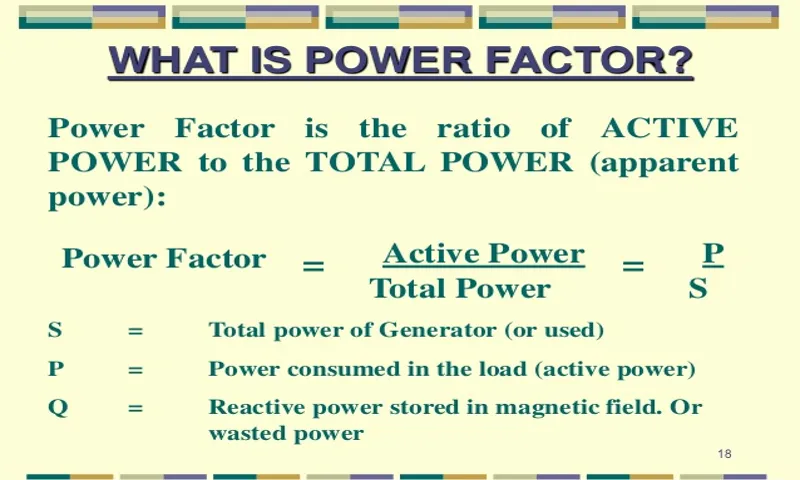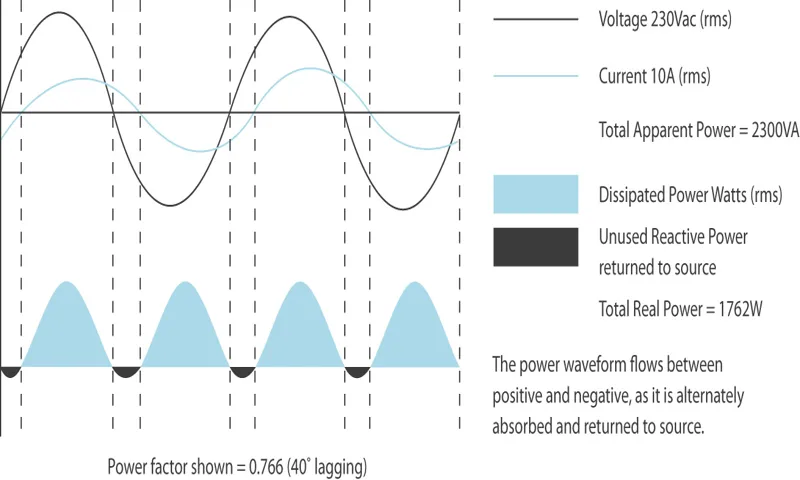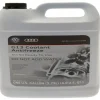You may have heard about power factor before, especially if you’re familiar with inverters or power electronics. But what exactly is power factor, and why is it important to understand it when it comes to inverters? In simple terms, power factor refers to the ratio of real power to apparent power in an electrical system. It represents how effectively electrical power is being used in a system.
To better understand power factor, let’s think of it in terms of a water hose. The real power can be compared to the actual water flow in the hose, while the apparent power is like the total water flow that could potentially be achieved if there were no restrictions. The power factor, then, would be the ratio of the actual water flow to the maximum possible water flow.
In the case of inverters, a high power factor is desirable as it indicates that the system is efficiently converting and utilizing electrical power. A low power factor, on the other hand, means that the system is not utilizing power efficiently and can result in increased energy consumption and costs. Understanding power factor in inverters is crucial for several reasons.
Firstly, it helps in selecting the right size of inverter for a specific application. By knowing the power factor, one can calculate the real power requirements and ensure that the inverter can handle the load effectively. Secondly, power factor correction can be implemented to improve the power factor and reduce energy wastage.
This involves adding reactive components to the electrical system to offset the effects of inductive or capacitive loads. By improving the power factor, energy consumption can be reduced, resulting in cost savings and improved efficiency. Additionally, understanding power factor in inverters is important for maintaining a stable and reliable electrical system.
A low power factor can cause voltage drops and fluctuations, which can lead to equipment damage and system failures. By keeping the power factor at optimal levels, the overall stability and performance of the electrical system can be enhanced. In conclusion, power factor plays a significant role in the performance and efficiency of inverters.
Table of Contents
What is Power Factor
Power factor is an important concept to understand when it comes to inverters. In simple terms, power factor refers to the efficiency of the inverter in converting electricity from one form to another. It represents the relationship between the real power, which is the power that is used to perform work, and the apparent power, which is the total power that is drawn from the electrical source.
A power factor of 1 means that the inverter is perfectly efficient in converting electricity, while a power factor less than 1 indicates that there is some loss of power during the conversion process. This loss can occur due to factors such as resistance in the electrical circuit or the presence of reactive power, which is power that is stored and released cyclically. Inverters with a low power factor can lead to increased energy consumption and decreased overall efficiency.
Therefore, it is important to consider power factor when choosing an inverter to ensure optimal performance and energy savings.
Definition of Power Factor
power factor Power factor is an important concept in electrical engineering that measures the efficiency of power consumption in an electrical system. In simple terms, power factor is a measure of how effectively a device or system converts electricity into useful work. It is expressed as a ratio between the real power (which is the power actually used by the load) and the apparent power (which is the total power supplied to the load).
A power factor of 1 indicates that the real power and the apparent power are equal, meaning that all the power supplied is being used efficiently. On the other hand, a power factor less than 1 indicates that the load is not using power effectively, resulting in wasted energy and increased costs. Understanding power factor is crucial for ensuring the optimal performance and energy efficiency of electrical systems, as well as reducing environmental impact.
By improving power factor, businesses can save money on their electricity bills and contribute to a more sustainable future. So, next time you turn on a device, think about how efficiently it is using electricity and what you can do to improve its power factor.

Importance of Power Factor in Inverters
inverters, power factor, importance
How Power Factor is Measured
power factor, measured, electrical system, efficiency, reactive power, lagging, leading, voltage, current Power factor is a crucial concept in the realm of electrical systems, as it directly impacts the efficiency of our devices and equipment. It measures how effectively an electrical system utilizes power, particularly in terms of reactive power. Reactive power is the power that oscillates back and forth between the source and the load without performing any useful work.
To measure power factor, we need to understand the concept of lagging and leading power factor. In a lagging power factor scenario, the voltage waveform lags behind the current waveform, resulting in a less efficient power transfer. On the other hand, a leading power factor occurs when the voltage waveform leads the current waveform, which also leads to a less efficient power transfer.
To measure power factor, we use a device called a power factor meter. This meter calculates the phase angle difference between the voltage and the current in the electrical system. By determining the power factor, we can assess how effectively the system is utilizing power.
Power factor can be measured using several methods, including using a power factor meter, power quality analyzers, or energy meters. These devices provide accurate measurements of power factor and allow us to determine whether our electrical system is operating efficiently. In conclusion, power factor is a crucial factor in determining the efficiency of an electrical system.
By measuring the power factor, we can assess how effectively power is being utilized and make adjustments to improve the system’s efficiency. The various methods available for measuring power factor provide accurate and reliable results, allowing us to optimize our electrical systems for maximum efficiency.
Impact of Power Factor on Inverter Performance
Power factor refers to the ratio of real power (measured in watts) to apparent power (measured in volt-amperes) in an electrical system. In the context of inverters, power factor can have a significant impact on performance. Inverters are electronic devices that convert DC (direct current) power into AC (alternating current) power.
This conversion process is essential for various applications, including solar power systems and backup power systems. When it comes to inverters, power factor is crucial because it affects the efficiency and capacity of the inverter. A low power factor means that the reactive power component of the load is high relative to the real power component.
This can lead to several issues. First, a low power factor increases the current flow, resulting in increased losses in the inverter and the electrical system overall. This reduces the overall efficiency of the system and can lead to increased energy consumption.
Second, a low power factor can also lead to voltage drops and instability in the system. This can result in decreased performance or even damage to connected devices and equipment. Conversely, a high power factor improves the efficiency of the inverter and reduces the likelihood of voltage drops and instability.
Therefore, it is important to consider power factor when selecting and designing inverters for specific applications. Inverters with a high power factor are preferable as they provide better overall performance and efficiency. Additionally, power factor correction techniques can be employed to optimize the power factor and improve the performance of the inverter.
By considering power factor in the design and operation of inverters, it is possible to maximize their performance and ensure the smooth and reliable operation of the electrical system.
Effects of Low Power Factor on Inverter Efficiency
power factor, inverter efficiency, low power factor, impact, performance. Low power factor can have a significant impact on the efficiency of an inverter. Inverter efficiency refers to how effectively an inverter can convert DC power to AC power.
When the power factor is low, it means that there is a disparity between the real power and the apparent power in an electrical system. This can occur when there is a high amount of reactive power, such as when there are inductive loads present. Reactive power is the power that is oscillating back and forth between the source and the load without being utilized.
When an inverter has to supply reactive power, it reduces its efficiency and increases its power consumption. This is because reactive power puts an additional burden on the inverter, causing it to work harder and, therefore, use more energy to function properly. As a result, the overall efficiency of the inverter decreases, leading to wastage of energy.
Power factor correction techniques can be used to mitigate the negative effects of low power factor, such as using capacitors to offset the reactive power. By improving power factor, the inverter can operate at a higher efficiency, reducing energy consumption and improving performance.
Benefits of High Power Factor in Inverters
inverter, power factor, benefits, high power factor The power factor plays a crucial role in the performance of inverters, and having a high power factor can bring several benefits. One of the main advantages is increased efficiency. Inverters with a high power factor are able to convert more of the input power into usable output power, which means less energy is wasted during the conversion process.
This not only helps to reduce energy consumption but also reduces the strain on the inverter, leading to improved reliability and a longer lifespan. Additionally, a high power factor can also improve the overall power quality. It reduces power losses, voltage drops, and harmonics in the electrical system, resulting in a more stable and reliable power supply.
This is especially important for sensitive electronic devices that require a clean and stable power source. So, if you’re looking to invest in an inverter, make sure to consider one with a high power factor for optimal performance and efficiency.
How to Improve Power Factor in Inverters
inverters, power factor, improve power factor, inverter performance. Inverters play a crucial role in converting DC power into AC power, making them an essential component in numerous devices such as solar panels and UPS systems. However, one often overlooked factor that can greatly impact inverter performance is power factor.
Power factor is a measure of how effectively electrical power is being converted and utilized, and a low power factor can result in a variety of issues including decreased efficiency, increased energy costs, and potential damage to the inverter. Improving power factor in inverters is therefore crucial for optimizing performance and reducing energy wastage. So, how can power factor be improved in inverters? Let’s explore some strategies to ensure the best possible power factor in your inverters.
Conclusion
In conclusion, power factor is like the Jedi Mind Trick of the inverter world. It’s the measure of how effectively the inverter can convert the force of electricity from the dark side (AC power) to the light side (DC power). Just like a wise Jedi, a high power factor inverter can manipulate the force to flow smoothly and efficiently, while a low power factor inverter struggles to maintain control and can cause disturbances in the Force, resulting in reduced energy efficiency.
So, why should you care about power factor? Well, aside from avoiding the wrath of the electric bill Sith Lords, a high power factor inverter not only saves energy but also enhances the performance and longevity of your electrical appliances. It ensures that your devices receive the optimal amount of power, while dodging unnecessary losses and power wastage. Imagine your inverter as a droid companion, guiding you through the galaxy of electrical power.
A high power factor inverter is like an R2-D2, efficiently navigating through obstacles and providing the energy you need, while a low power factor inverter is more like a Jar Jar Binks, stumbling and causing chaos at every turn. So, next time you’re in the market for an inverter, remember to choose wisely, like a Jedi Knight selecting their lightsaber. Look for a high power factor rating, and may the force (of efficiency) be with you!”
FAQs
What is power factor in an inverter?
Power factor in an inverter refers to the ratio between the real power (measured in watts) and the apparent power (measured in volt-amperes). It indicates how effectively the inverter converts electrical power into useful output power.
Why is power factor important for an inverter?
Power factor is important for an inverter because it affects the efficiency and performance of the device. A low power factor can result in energy losses and reduced capacity, while a high power factor indicates a more efficient operation.
How does power factor affect the energy consumption of an inverter?
The power factor of an inverter affects its energy consumption because a low power factor leads to higher reactive power, which is not effectively utilized. This can result in increased energy costs and reduced overall efficiency.
Can the power factor of an inverter be improved?
Yes, the power factor of an inverter can be improved through the use of power factor correction techniques. These techniques involve the addition of capacitive or inductive elements to the inverter circuit, which help to counterbalance the reactive power and improve the power factor.
What are the benefits of a high power factor for an inverter?
A high power factor in an inverter provides several benefits, including improved efficiency, reduced energy consumption, and increased capacity. It also helps to ensure stable voltage levels and minimize voltage drops in the electrical system.
How does power factor affect the lifespan of an inverter?
Power factor can indirectly affect the lifespan of an inverter by influencing its temperature and stress levels. A low power factor can cause the inverter to operate at higher currents, leading to increased heat and potentially shortening its lifespan.
Are there any standards or regulations related to power factor for inverters?
Yes, there are international standards and regulations, such as the IEEE 1547 and IEC 61400-21, that define the power factor requirements for grid-connected inverters. These standards aim to ensure the efficient and reliable operation of inverters in power systems.
How does power factor affect the power quality of an inverter? A8. Power factor is one of the factors that contribute to the power quality of an inverter. A low power factor can lead to voltage fluctuations, harmonic distortion, and power factor penalties. A high power factor helps to maintain a stable and high-quality power supply.
Can power factor affect the compatibility of an inverter with other electrical devices?
Yes, power factor can affect the compatibility of an inverter with other electrical devices. In some cases, devices with low power factors may not work well with certain types of electrical equipment, causing compatibility issues or reduced performance.
How can power factor be measured in an inverter?
Power factor in an inverter can be measured using a power factor meter or through electrical measurements of voltage, current, and power. Various methods, such as the cosine theta method or the total harmonic distortion method, can be used to calculate the power factor.
Can power factor correction be applied to all types of inverters?
Power factor correction techniques can be applied to most types of inverters, including single-phase and three-phase inverters. However, the specific methods used may vary depending on the inverter design and application requirements.
Is power factor the only factor to consider when evaluating an inverter?
No, power factor is just one of the factors to consider when evaluating an inverter. Other important factors include efficiency, voltage regulation, frequency stability, harmonic distortion, and overall system compatibility.



